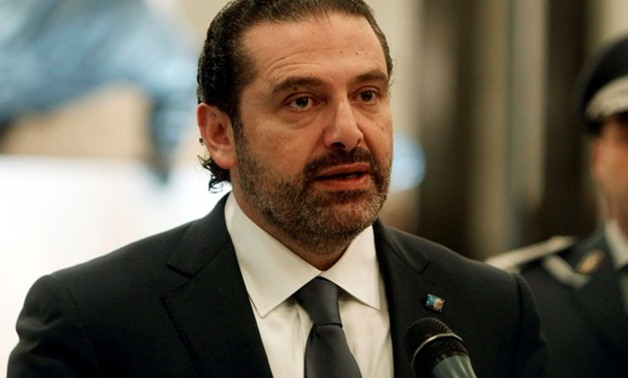
Saad al-Hariri who suspended his decision to resign as prime minister talks at the presidential palace in Baabda, Lebanon November 22, 2017. REUTERS/Aziz Taher
BEIRUT - 5 October 2018: The leader of one of Lebanon's main Christian parties said on Friday he didn't want to create "artificial optimism" about a breakthrough in talks over a new government, a day after Prime Minister-designate Saad al-Hariri said one would be formed soon.
Five months since a parliamentary election, Lebanese politicians remain unable to agree on how to share out ministerial portfolios in the new unity government that Hariri is trying to form.
Hariri said on Thursday the new government, expected to comprise 30 ministers, would be formed within a week to 10 days because the economy could not tolerate further delay. He called on all sides to make concessions.
But Free Patriotic Movement (FPM) leader Gebran Bassil, in a televised news conference on Friday, stuck by his demand that the FPM bloc get six portfolios in the new government. The FPM is the biggest Christian party in parliament.
Bassil, currently foreign minister in the caretaker government and a political ally of the Iran-backed Shi'ite group Hezbollah, also gave no ground in demanding a separate share of five cabinet seats for President Michel Aoun, the FPM's founder and Bassil's father-in-law.
His comments signalled no compromise with the Lebanese Forces party, Lebanon's second largest Christian party and a staunch opponent of Hezbollah. Bassil said the LF should get three cabinet posts, based on the legislative election result.
The LF, which nearly doubled its MPs in the election, says it is entitled to a third of the Christian representation in government. The competing demands of the LF and FPM are seen as the biggest obstacle to an agreement.
Lebanese officials are warning the heavily indebted state faces economic crisis. The IMF wants to see immediate and substantial fiscal adjustment to improve the sustainability of Lebanon's public debt, which stood at over 150 percent of gross domestic product at the end of 2017.

Comments
Leave a Comment